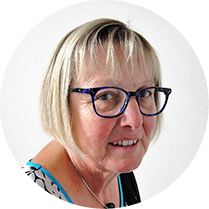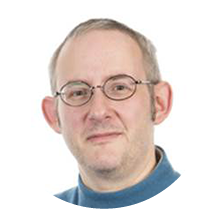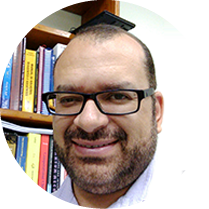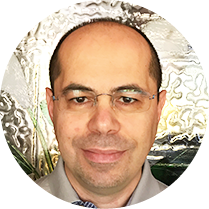
3rd International Electronic Conference on Medicinal Chemistry
Part of the International Electronic Conference on Medicinal Chemistry series
1–30 November 2017
- Go to the Sessions
- Event Details
Welcome from the Chair
Further to the success of the two first editions, Pharmaceuticals, a peer-reviewed journal edited by MDPI, is proud to organize and sponsor the 3rd International Electronic Conference on Medicinal Chemistry. Contributions dealing with any discipline promoting research in drug discovery and development will be welcome.
The conference will be held online (www.sciforum.net/conference/ecmc-3) from November 1–30, 2017. It will enable you to share your recent results with scientists of academic and industrial groups from all over the world.
Participation, as an author or a visitor, is ABSOLUTELY FREE (simply create an account on the home page). Abstracts of the presentations will be published, upon authorization of the authors, in a meeting report after the conference.
On behalf of our dynamic editorial staff and active scientific committee, we warmly invite you to join us during this third edition and we look forward to posting your contributions.
All participants of ECMC-3 are welcome to submit the extended work to the Pharmaceuticals Special Issue "Selected Papers from the 3rd International Electronic Conference on Medicinal Chemistry".
Conference Chair
|
Dr. Jean Jacques Vanden Eynde |
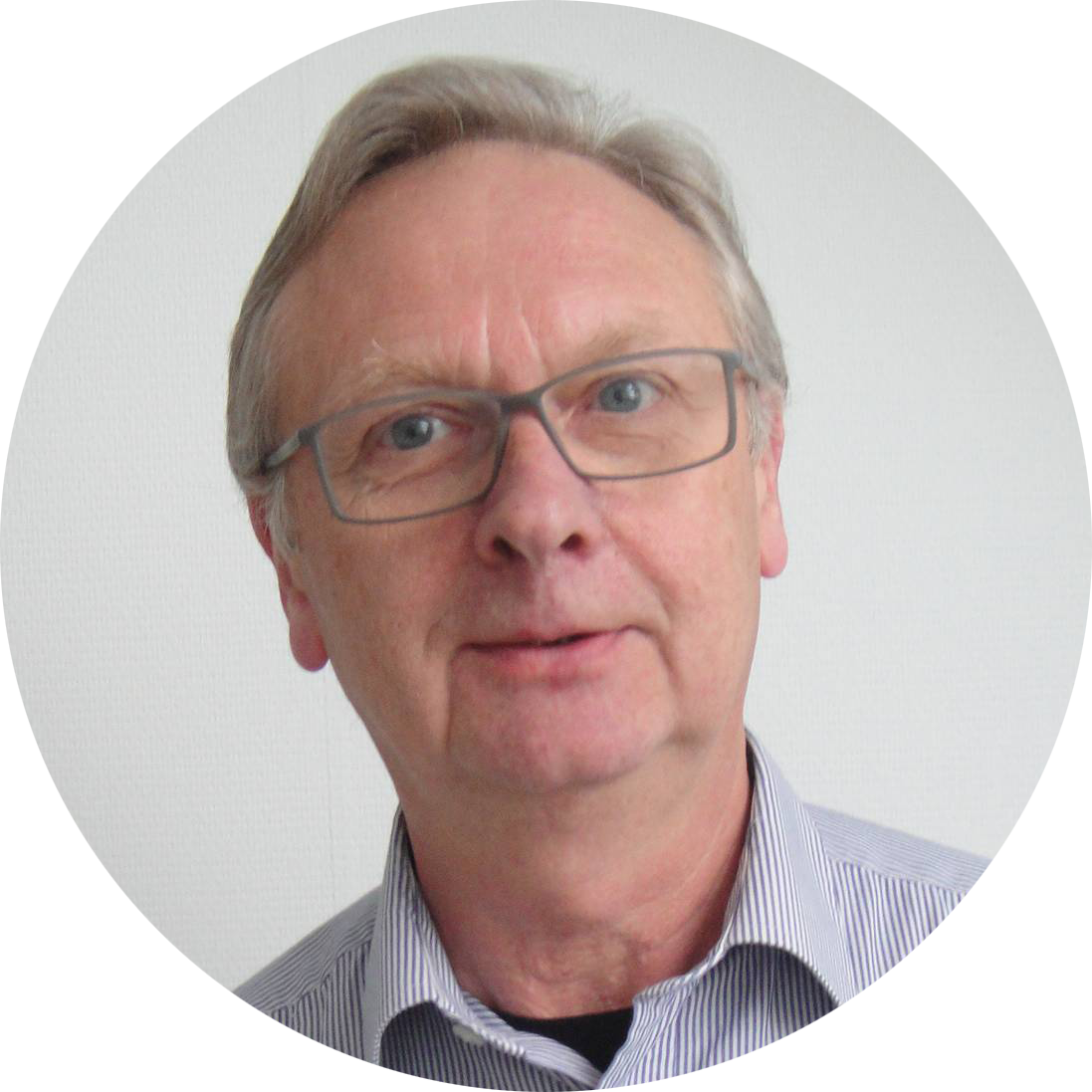 |
Conference Committee
|
IPBLN-CSIC, Spain |
Universidade do Porto, Portugal |
University of Nebraska Medical Center, USA |
|
Haute Ecole Provinciale de Hainaut-Condorcet, Belgium |
Université Libre de Bruxelles, Belgium |
Universidade Federal do Rio de Janeiro, Brazil |
|
Università degli Studi di Cagliari, Italy |
Call for Papers
The conference will cover a wide range of aspects involved in drug discovery and development. A non exhaustive list of topics that will be considered comprises:
- ADMET
- Animal experimentation
- Assay development
- Biomarkers
- Biomolecules
- Biosensors
- Biotechnology
- Chemical synthesis
- Clinical studies and side effects reports
- Combinatorial chemistry
- Drug delivery (including bioconjugates and prodrugs)
- High throughput screening
- Hit identification
- Imaging techniques
- In silico experiments
- In vitro studies
- Lead optimization
- Omics
- Pharmaceutical analysis
- Scale-up
- Structure–activity relationships
- Target selection
After the conference, proceedings will be published free of charge thanks to the sponsoring of the journal Pharmaceuticals, in a meeting report. Authors of the most outstanding contributions, as selected by the Scientific Committee, will be invited to publish their work as a research article free of charge or at a discounted price, in a Special Issue of the journal Pharmaceuticals.
The Scientific Committee looks forward to receiving contributions in response to this call and will be glad to provide any further information to interested parties. Questions may be addressed to the chairman via e-mail at jean-jacques.vandeneynde@ex.umons.ac.be or to the Pharmaceuticals editorial office at ecmc@mdpi.com.
We thank you in advance for your attendance of this conference and look forward to a stimulating exchange.
Conference Chairs

Formerly head of the Department of Organic Chemistry (FS), University of Mons-UMONS, 7000 Mons, Belgium
jean-jacques.vandeneynde@ex.umons.ac.be
Conference Committee

Department of Molecular Biology, Instituto de Parasitología y Biomedicina López-Neyra, (IPBLN-CSIC), PTS Granada, Av del Conocimiento 17, 18016 Granada, Spain
structure-function of RNA; aptamers; antisense; ribozymes; viral RNA genomes; RNA as tool; therapeutic RNAs
aberzalh@ipb.csic.es

Laboratório de Química Orgânica e Farmacêutica, Departamento de Ciências, Químicas, Faculdade de Farmácia, Universidade do Porto, Rua Jorge Viterbo Ferreira 228, 4050-313, Porto, Portugal
medicinal chemistry; organic synthesis; heterocycles, P-glycoprotein; anticancer; anticoagulants; chiral drugs; marine natural products
esousa@ff.up.pt

Department of Pathology & Microbiology University of Nebraska Medical Center, USA
host defense antimicrobial peptides, structural bioinformatics, biomolecular NMR
gwang@unmc.edu

Formerly professor at the Haute Ecole Provinciale de Hainaut-Condorcet, 7330 Saint-Ghislain, Belgium
medicinal chemistry, organic synthesis, parasitic diseases, orphan drugs
annie.mayence@alumni.umons.ac.be

Faculté de Pharmacie, Université Libre de Bruxelles, Campus Plaine CP 205/5, 1050 Brussels, Belgium
medicinal chemistry; anticancer metal complexes; asymmetric synthesis
dufrasne@ulb.ac.be

Universidade Federal do Rio de Janeiro, IPPN, CCS, Bloco H - Ilha do Fundão, Rio de Janeiro, RJ - 21941-902, Brazil
molecular modeling; computer-aided drug design; bioinformatics; chemoinformatics
osvaldo@correio.nppn.ufrj.br

Università degli Studi di Cagliari, Dipartimento di Scienze Chimiche e Geologiche, Cittadella Universitaria, SS 554, bivio per Sestu, 09042, Monserrato (CA), Italy
peptide synthesis; peptide nucleic acid; indole synthesis; amide synthesis; mechanochemical reaction; borrowing hydrogen; microwave; heterocycle synthesis; hydroxamic acids
porcheddu@unica.it
Instructions for Authors
Submissions should be done by the authors online by registering with www.sciforum.net, and using the "Start New Submission" function once logged into system.
Researchers interested in attending the conference must submit, on this website and not later than 15 October 2017, an abstract of the work they intend to present.
After the abstract is accepted by the Scientific Committee (1-5 days after receipt of the abstract), the authors will be invited to prepare a full description of their work preferably under the form of a PowerPoint presentation, and to upload it before 20 October 2017 to ensure final check.
The presentations will be accessible on https://sciforum.net/conference/ecmc-3 during the time of the conference.
Authors are encouraged to prepare a presentation using the template provided by the conference. Slides will be displayed directly in the website using Sciforum.net's proprietary slides viewer. They can be prepared in exactly the same way as for any traditional conference where research results can be presented. Slides should be converted to the PDF format before submission so that our process can easily and automatically convert them for online displaying.
Electronic Conference on Medicinal Chemistry PPT template file
Electronic Conference on Medicinal Chemistry Poster template file
The following organization is recommended for your presentation:
- Length of the presentation: no more than 30 slides
- Slide 1 (strictly one slide): Title, Authors’ names, Affiliation(s), email address of the corresponding Author, and, not mandatory, logos of the laboratory and/or institution;
- Slide 2 (strictly one slide): Graphical Abstract, repeat the title of the presentation but avoid other text as far as possible;
- Slide 3 (strictly one slide): Abstract (max 200 words) and 3-5 keywords separated by semicolons;
- Slide 4 and following slides: should contain (in the given sequence) Introduction, Results and Discussion; Conclusions.
- Last slide: Acknowledgments and, not mandatory, logos of sponsors of the work.
MDPI AG, the publisher of the Sciforum.net platform, is an open access publisher. We believe that authors should retain the copyright to their research works. Hence, by submitting a contribution to this conference, the authors retain the copyright of their contribution, but they grant MDPI AG the non-exclusive right to publish this contribution online on the Sciforum.net platform. This means the authors can easily submit their contribution to any scientific journal at a later stage and transfer the copyright to its publisher (if required by that publisher).
List of accepted submissions (76)
| Id | Title | Authors | Poster PDF | ||||||||||||||||||||||||||||||||||||||
|---|---|---|---|---|---|---|---|---|---|---|---|---|---|---|---|---|---|---|---|---|---|---|---|---|---|---|---|---|---|---|---|---|---|---|---|---|---|---|---|---|---|
| sciforum-012625 | Interaction of Zinc(II) Complexes with Relevant Nitrogen Nucleophiles under Physiological Conditions | , |

|
Show Abstract |
|||||||||||||||||||||||||||||||||||||
|
In recent years, the field of medicinal inorganic chemistry has received considerable attention for the design of anticancer agents. Zinc(II) ion plays an important role in bioinorganic processes because of the potential formation of coordination compounds in which zinc(II) ion can readily accommodate four-, five-, or six molecules. The advantage of zinc-based anticancer drugs could be their selectivity toward specific cellular targets thanks to specific coordination ability and kinetic properties (Bertini I., et al., Biological Inorganic Chemistry. Structure and Reactivity, University Science Books: Sausalito, CA, 2007; Roat-Malone R.M. (Ed.), Bioinorganic Chemistry: A Short Course, John Wiley & Sons, Inc., Hoboken, NJ, 2002). The mole-ratio method was used for determining metal-ligand stoichiometry between [ZnCl2(en)] (where en= 1,2-diaminoethane or ethylenediamine) and imidazole at pH 7.2 in the presence of different chloride concentrations. The results indicated step-wise formation of 1:1 and 1:2 complexes in the presence of 0.010 M NaCl and 1:1 complexes in the presence of 0.001 M NaCl. Those results are correlated with additional coordination of chlorides in the first coordination sphere and with changes in coordination geometry. In the presence of 0.001 M NaCl, five-coordinate complex anion [ZnCl3(en)]- is formed initially, and then substitution reaction with imidazole occurred. In the presence of 0.010 M NaCl the octahedral complex anion [ZnCl4(en)]2- formed. The kinetics of ligand substitution reactions between complex and relevant nitrogen nucleophiles such as imidazole, 1,2,3-triazole and L-histidine were investigated at pH 7.2 as a function of nucleophile concentration in the presence of 0.001 M and 0.010 M NaCl. The reactions were followed under pseudo-first-order conditions by UV-vis spectrophotometry. The substitution reactions included two steps of consecutive displacement of chlorido ligands and changes in coordination geometry of [ZnCl2(en)] complex. Results are discussed in terms of mechanisms of interactions between potential antitumor zinc-based drugs and biomolecules. |
|||||||||||||||||||||||||||||||||||||||||
| sciforum-013793 | Interrelation between Histamine and Serotonin, Dopamine, GABA, IGF-1 in a Growth Hormone (GH) Deficient Group under rh-GH Replacement Therapy | , , , |

|
Show Abstract |
|||||||||||||||||||||||||||||||||||||
|
Aim: To evaluate relationship between histamine (HIST), serotonin (5-HT), dopamine (DA), gamma-amino-butyric acid (GABA) and IGF-1 in 20 GH-deficient boys. Research design and methods: This study included 20 boys (5-14 years) with GH deficit clinically established and a 10 matched normal group with no endocrine dysfunction. All of GH deficient patients underwent GH replacement therapy. In 2017, all subjects were tested by analytical methods for blood: HIST,GABA,DA,5-HT,IGF-1. Results: We divided this study group into a low HIST lot 1 (10 subjects): HIST median: 3.48 nM/L and a high HIST lot 2 (10 subjects): HIST median: 11nM/L. Median parameters in lot 1 vs. lot 2 were: 5-HT: 212.5 vs. 370ng/mL, DA: 30 vs. 45pg/ml, GABA: 30 vs. 56.5ng/mL, IGF-1: 373.5 vs. 200ng/mL. Median values in normal subjects were as it follows: HIST: 5.55nM/L; 5-HT: 235.5ng/mL; DA: 31.5pg/mL; GABA: 81ng /mL. T-Test revealed a statistical significance between HIST in lot 1 vs. lot 2 (P<0.001), HIST in lot 1 vs. normal group (P<0.01) or HIST in lot 2 vs. normal group (P<0.01).We can also underline a statistical significance between 5-HT in lot 1 vs. lot 2 (P<0.05) or in lot 2 vs. normal group (P=0.01). Conclusion: Our study underlined a HIST/5-HT positive relationship in low HIST group vs. a negative relationship HIST/5-HT in high HIST group, with small IGF-1 increments under r-GH therapy. |
|||||||||||||||||||||||||||||||||||||||||
| sciforum-013795 | One Year r-GH Therapy Influence on Blood gamma-Aminobutyric acid, Serotonin, Dopamine and IGF-1 in 15 Growth-hormone Deficient Children | , , |

|
Show Abstract |
|||||||||||||||||||||||||||||||||||||
|
Aim: To quantify the effect of 1 year r-GH therapy on blood gamma-aminobutyric acid (GABA), serotonin (5-HT), dopamine (DA) and IGF-1 in 15 growth-hormone (GH) deficient children. Research design and methods: This retrospective study included 8 boys (7-14 years) and 7 girls (7-14 years) with clinically established GH deficit and under GH replacement therapy. In 2016 they were quantified for GABA, DA, 5-HT and IGF-1.After 1 more year of GH therapy, they were again tested for the same parameters using analytical methods. Results: Median plasma parameters in 8 boys pre- vs. post-GH therapy was: GABA: 59.44 vs. 105.83ng/mL; 5-HT: 269.66 vs.196.55ng/mL; DA: 46.66 vs.91.5pg/mL; IGF-1: 367.38 vs. 445.5ng/mL. The same parameters were tested in 7 girls as median pre- vs. post-GH therapy: GABA: 45 vs.96ng/mL; 5-HT: 215 vs. 200ng/mL; DA: 40 vs. 60pg/mL; IGF-1: 284 vs.420ng/mL. We established statistical significant differences in boys group pre-and post-treatment in: plasma GABA(P<0.001), serum 5-HT (P<0.01), plasma DA (P<0.02), serum IGF-1(P=0.02). In girls group we calculated statistical significant differences in plasma GABA pre- vs. post-therapy (P<0.001) and in plasma DA pre- vs. post-therapy. Conclusions: In fact replacement GH-therapy improved GABA/5-HT, GABA/DA, GABA/IGF-1, 5-HT/IGF-1 correlations in boys group. In girls group we estimated improved correlations between GABA/DA, 5-HT/DA, 5-HT/IGF-1.These observations could be translated in general improvement of health state in growth-deficient children under GH- therapy. |
|||||||||||||||||||||||||||||||||||||||||
| sciforum-013992 | Targeting the Trypanosome Alternative Oxidase (TAO) as Promising Chemotherapeutic Approach for African Trypanosomiasis | , , , , , , , |

|
Show Abstract |
|||||||||||||||||||||||||||||||||||||
|
In Trypanosoma brucei, a parasite that causes African trypanosomiasis in humans (sleeping sickness) and in livestock (nagana) throughout sub-Saharan Africa, the trypanosome alternative oxidase (TAO) is essential for the respiration of bloodstream form parasites (i.e. the human-infective form). Since TAO has no counterpart in mammalian cells and it is conserved among T. brucei subspecies, it has been validated as a promising target for the chemotherapy of African trypanosomiasis. We present here a successful approach to boost the activity of TAO inhibitors based on the conjugation of the inhibitor with lipophilic cations (LC) that can cross lipid bilayers by non-carrier mediated transport, and thus accumulate specifically into mitochondria, driven by the plasma and mitochondrial transmembrane potentials (negative inside). This design afforded several LC–TAO inhibitor conjugates active in the submicromolar to low nanomolar range against wild type and resistant strains of African trypanosomes (T. b. brucei, T. congolense), with selectivity over human cells >500. |
|||||||||||||||||||||||||||||||||||||||||
| sciforum-014165 | Synthesis and Physicochemical Characterizations of a Fluorinated Paramagnetic Contrast Agent |

|
Show Abstract |
||||||||||||||||||||||||||||||||||||||
|
Introduction Medical imaging is a dynamic area of research whose one of the goal is the elaboration of more efficient contrast agents. Those agents need to be improved to optimize the detection of affected tissues such as cancers or tumours while decreasing the injected quantity of agents. The paramagnetic contrast agents containing fluorine atoms can be used both on proton and fluorine MRI. This research field is therefore promising thanks to the ability to map the anatomy by 1H MRI and locate exactly the agents by 19F MRI. In this domain, one of the challenges is to synthesize a molecule containing several chemically equivalent fluorine atoms characterized by a short relaxation time to allow the record of fluorine MR images in good conditions. In that aim, we propose to synthesize a compound containing a paramagnetic ion and nine chemically equivalent fluorine atoms by a cycloaddition reaction between two previously synthesized products. Methods In a first time, a derivative of DOTAGA macrocyclic ligand has been synthesized. This macrocycle has been obtained by a multistep synthesis during which an azide function was added. Then, the ligand has been complexed with GdCl3. In a second time, a nonafluorinated compound containing an alkyne function has been synthesized in order to allow the use of the contrast agent in fluorine MRI. Finally, these two molecules were combined via a click chemistry reaction. Results The fluorinated paramagnetic contrast agent has been characterized by relaxometry which shows an increase of the agent efficiency in comparison with the parent compound Gd-DOTA. A 19F NMR study has also shown a significant decrease of the fluorine-19 relaxation times (from about 2 s for the single molecule to about 10 ms for the molecule conjugated to the paramagnetic macrocycle) which is promising for a future use in 19F MRI. Conclusions The targeted compound has been successfully synthesized and the preliminary characterizations are very promising. It will be now essential to perform 19F MRI in vitro and in vivo tests to evaluate the diagnosis potential of the synthesized contrast agent. Furthermore, possible perspectives are envisaged. A modification of the synthesis strategy will allow an active targeting of the compound via the grafting of a biovector, or will also allow to increase the number of chemically equivalent fluorine atoms via a dendrimeric structure, which could be benefit to increase the sensitivity. |
|||||||||||||||||||||||||||||||||||||||||
Copyright
MDPI AG, the publisher of the Sciforum.net platform, is an open access publisher. We believe that authors should retain the copyright to their research works. Hence, by submitting a contribution to this conference, the authors retain the copyright of their contribution, but they grant MDPI AG the non-exclusive right to publish this contribution online on the Sciforum.net platform. This means the authors can easily submit their contribution to any scientific journal at a later stage and transfer the copyright to its publisher (if required by that publisher).
Best Presentation Award
This year, as a sponsor, Pharmaceuticals would like to award the best presentation as elected by all the organizers. The Award will consist of 500 Swiss Francs. We look forward to posting your contributions.
Criteria for Evaluation of Best Presentation Award 2017:
Criteria
- Full PPT presentation must be submitted to ECMC-3.
- The quality of the presentation.
- The scientific content of the presentation
Evaluation
- Each Evaluation Committee member will give an assessment for each applicant in terms of the criteria outlined above.
- Total score for each presentation will be ranked, from highest to lowest.
- If two or more students get the same score, further evaluation will be carried out.
- All decisions made by the Evaluation Committee are final.
Best Presentation at ECMC-3
Pharmaceuticals and the Organizing Committee of ECMC-3 congratulate Jalal Soubhye who received an award for the best presentation at ECMC-3:
Topic: Dual Anti-Inflammatory and Anti-Bacterial Effects of Phenylhydrazide and Phenylhydrazone Derivatives
authored by Jalal Soubhye,
Laboratoire de Chimie Pharmaceutique Organique, Faculté de Pharmacie, Université Libre de Bruxelles, Campusplaine, CP 205/5, 1050 Brussels, Belgium.
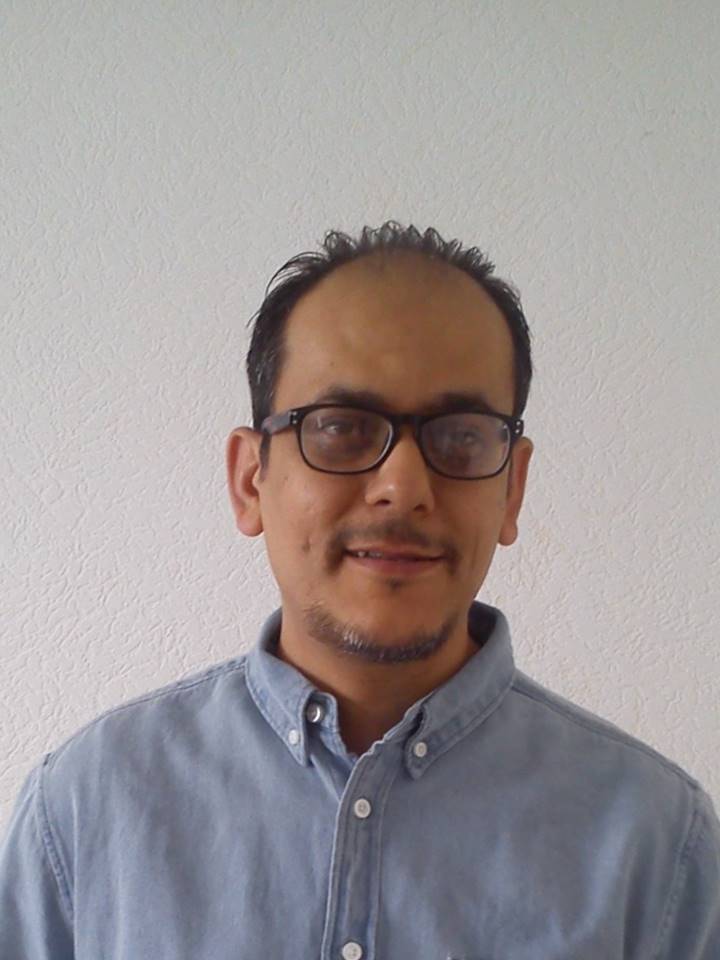
"Currently, Dr. Jalal Soubhye works as academic researcher at the Université Libre de Bruxelles (ULB) in the field of medicinal chemistry, whose research focuses on pharmacological design, synthesis and evaluation of new chemical substances with therapeutic potential. His current research interests are in the development and evaluation (in vitro and in vivo) of myeloperoxidase inhibitors as anti-inflammatory agents. Understanding of the mechanism of inhibition is very important to obtain new potent and safe inhibitors. In addition, he is working on design, synthesis and evaluation of new antimicrobial agents."
Exhibition Hall
Electronic Exhibition Hall of ECMC - Develop and Strengthen Your Brand
- Free of charge for companies exhibited in 2017.
- High visibility: The last edition of this series provided the opportunity to more than 10,000 visitors to browse
among 42 relevant slide shows and videos, presented by 150 authors from 22 countries. - Super easy to prepare: a short introduction of your company, and a PPT presentation (less than 10 slides) to show super star products.

Euriso-top Founded in January 1991 by a group of researchers from the Commissariat à l'Energie Atomique (CEA), Euriso-Top became a leading producer of deuterated solvents and stable isotope labelled compounds in Europe, thanks to an incomparable knowledge.
Read more...With a large catalog of thousands of chemical compounds covering various fields of application (Proteomics and Genomic research, Biotechnology discovery, Organic synthesis, Pharmaceutical development, Manufacturing industry), Euriso-top, has been supplying for 25 years the scientific community with stable isotope labeled chemicals, isotopic gases, NMR solvents, isotopic metals, Clinical trials substrates.
ELVESYS is an innovative self-funded company that started the commercialization of microfluidic instrumentation in 2011. ELVESYS aims to become a key research partner in the microfluidic field because we believe this domain will be the heart of next technological revolution.
Read more...Doubling its turnover every 9 months, in just 4 years its ELVEFLOW brand has become the world leader of high performance microfluidic flow control. Rewarded by more than 10 entrepreneurial distinctions, ELVESYS launched two sisters companies in 2013 and 2014, respectively specialized in the biological environment control, the microfluidic device design and fast microchip prototyping.
Hielscher Ultrasonics GmbH: High-power ultrasonic processors for liquid processing
Hielscher Ultrasonics specializes in the design, development and production of ultrasonic devices - both for use in laboratories as well as for industrial applications. Due to the outstanding power of the ultrasonic processors and the high quality standards, Hielscher became the world's leading supplier of high performance ultrasonic equipment. The product range of Hielscher Ultrasonics includes ultrasonic devices to / for
Read more...- Dispersing
- Synthesis of nanoparticles
- Desaggregieren / Disagglomerating
- Particle Size Reduction (Wet-milling / fine-grinding of micro-and nano-scale particles)
- Homogenization
- Emulsification
- Extraction
- acceleration of chemical reactions (Sonochemistry)
- Wire cleaning
A leading Belgian company distributing laboratory instruments and furniture.
As a distributor of laboratory instruments and lab furniture, Analis is primarily oriented towards research activities, biotechnology applications, chemistry, clinical chemistry and medical in vitro diagnostics and quality control.
Read more...We are actively involved in the biotechnological and pharmaceutical sector (from basic research to production), as well as in the agro and food industry. Our mission is to provide researchers in proteomics, genetics and cellular analysis with appropriate professional instruments and support tools.
Established in Namur in 1927, Analis employs more than 130 people in two locations: The head office is in Suarlée (NAMUR) in the south of Belgium and we have a branch office in Sint-Denijs-Westrem (GENT) in the north.
Thanks to acquisitions, distribution activities and constant innovation, our company has grown and integrated new technologies. Analis covers all aspects of laboratory management: from laboratory project design to complete maintenance of customer’s installed equipment. We structured our organization in order to guide each (research) laboratory with the necessary expertise, application support, technologies and solutions in the following fields: Life Sciences;- In Vitro Diagnostics; Laboratory Equipment; Analytical Chemistry; Materials Testing; Metrology; Laboratory Furniture by ARDESTA.
Our priority is to offer a high level of application and service support. Furthermore, by offering a full range of flexible automation systems, we help each laboratory to increase its lab productivity.
Analis is certified ISO9001-2008, including conception, production, distribution and technical assistance.
Analis also runs a research laboratory, ‘Analis R&D Diag’, that develops electrophoresis and CE in vitro diagnostic kits (CEOfix™). ANALIS R&D Diag is focused on analytical method development through the use of capillary
MDPI (Multidisciplinary Digital Publishing Institute) is an academic open-access publisher with headquarters in Basel, Switzerland. Additional offices are located in Beijing and Wuhan (China), Barcelona (Spain) as well as in Belgrade (Serbia).
Read more...MDPI publishes 179 diverse peer-reviewed, scientific, open access, electronic journals, including Molecules (launched in 1996; Impact Factor 2.861), the International Journal of Molecular Sciences (launched in 2000; Impact Factor 3.226), Sensors (launched in 2001; Impact Factor 2.677), Marine Drugs (launched in 2003; Impact Factor 3.503), Energies (launched in 2008; Impact Factor 2.262), the International Journal of Environmental Research and Public Health (launched in 2004; Impact Factor 2.101), Viruses (launched in 2009; Impact Factor 3.465), Remote Sensing (launched in 2009; Impact Factor 3.244), Toxins (launched in 2009; Impact Factor 3.030), Nutrients (launched in 2009; Impact Factor 3.550), and Pharmaceuticals (CiteScore 4.9). Our publishing activities are supported by more than 15,700 active scientists and academic editors on our journals' international editorial boards, including several Nobelists. More than 263,500 individual authors have already published with MDPI. MDPI.com receives more than 8.4 million monthly webpage views.
Tropical Medicine and Infectious Disease (ISSN 2414-6366) is an international, scientific, open access journal of tropical medicine and infectious disease published quarterly online by MDPI. It is the official journal of The Australasian College of Tropical Medicine.
All the latest news, products, jobs, events and much more pertaining to chemistry, life science and analytics can be found on the CHEMIE.DE online portals. bionity.com is our life science flagship. It addresses readers who are interested in facts and trends from life science, biotechnology and pharma—and all this in four different languages! A total of around 700,000 page views per month confirm there is great interest in bionity.com and its information services.
Pharmaceuticals (ISSN 1424-8247; CODEN: PHARH2) is an open access journal of medicinal chemistry and related drug sciences, published quarterly online by MDPI. Citations are available in PubMed, full-text archived in PubMed Central. Following Scopus, the 3-year *CiteScore* of Pharmaceuticals is 4.9 in 2016. Pharmaceuticals is now ranked #8/168 in the category "Pharmaceuticals Science".
LATOXAN is the leading producer of venoms from snakes, scorpions and batrachians with over 300 different venoms worldwide available. LATOXAN also produces and supplies venom toxins, plant, plant small molecules and screening libraries. LATOXAN supplies Pharmaceutical Industry, Academic and Pharma Research centres and worldwide distributors of Life Science Reagents.
Conference Organizers
Dr. Franck Vazquez, MDPI AG, Basel, Switzerland
Ms Changzhen Fu, MDPI AG Branch Office, Wuhan, China
Ms Flora Li, MDPI AG Branch Office, Wuhan, China
List of Keynotes & Videos
Old pharmaceuticals with new applications: the case studies of lucanthone and mitoxantrone
Related papers Old Pharmaceuticals with New Applications: the Case Studies of Lucanthone and Mitoxantrone
Synthesis,Characterization,Molecular docking and Structure-Activity Relationships of Novel Thiazolo[3,2-α]pyrimidines as Prospective Acetylcholinesterase Inhibitors
Related papers Synthesis, Characterization, Molecular docking and Structure-Activity Relationships of Novel 2-Arylidene- and 2-Aminomethylenethiazolo[3,2-a]pyrimidines as Prospective Acetylcholinesterase Inhibitors
Electrochemical Detection of Salmonella via On-surface Isothermal Amplification of its Genetic Materia onto Highly Stable and Reproducible Indium Tin Oxide Platforms
Searching for bioactive molecules in prostate cancer from Mayan traditional medicinal plants
C. Round Table on Nanomedicines
This round table is organized with the help of our media partner Precision Nanosystems.
Precision NanoSystems (PNI) creates innovative solutions for the discovery, development and manufacture of novel nanoparticles for use as medicines and in medical research. PNI headquarters is located in Vancouver, Canada with scientist and sales support located globally and our instruments in over 20 countries.
PNI’s proprietary NanoAssembler Platform enables the rapid, reproducible, and scalable manufacture of next generation nanoparticle formulations for the targeted delivery of therapeutic and diagnostic agents to cells and tissues in the body. PNI provides instruments, reagents and services to life sciences researchers, including pharmaceutical companies, and builds strategic collaborations to revolutionize healthcare through nanotechnology. This is illustrated by the one-hour video presenting breakthroughs in nanomedicines: https://youtu.be/hz27xoFddno.
Show all published submissions (1) Hide published submissions (1)
Submissions
List of Papers (1) Toggle list
D. Round Table on Parasitic Diseases
This round table is chaired by Dr. Conor Caffrey from the University of California at San Diego (USA).
Parasitic diseases continue to pose major public health problems, particularly in developing countries, worldwide. Moreover, the (re)appearance of these diseases in developed territories, such as schistosomiasis in Europe and Chagas disease in the southern United States, means that we must be increasingly vigilant in our preventive and response strategies as the global economy and climate change. However, the alarming ability of parasites to develop drug resistance combined with the small number of sometimes partially effective drugs available undermines our ability to manage and treat some diseases; a case in point being the emergence and establishment of drug resistance by the malaria parasite to artemisinin-based combination therapies (ACTs) over the last decade. Thus, there is a continuing, indeed, increasing, need to explore and develop new opportunities for chemotherapies. In this arena, the contribution of academia is vital. The current selection of papers submitted to this Round Table on Parasitic Diseases regarding leishmaniasis, trichomoniasis, Chagas disease, tuberculosis and Human African Trypanosomiasis attest to the continuing hard work and ingenuity of academic scientists to develop new ideas and approaches in the chemical battle against parasites. Importantly, in addition to synthetic chemical approaches described, we see the tapping of the vast chemical space of natural products as source of new drugs. It is hoped that the science presented at this Round Table will promote new exchanges and ideas among the chemical biology, parasitology and drug discovery communities, and ultimately contribute to the identification of novel therapeutic strategies.
Session Chair
Dr. Conor Caffrey
Show all published submissions (8) Hide published submissions (8)
Submissions
List of Papers (8) Toggle list







